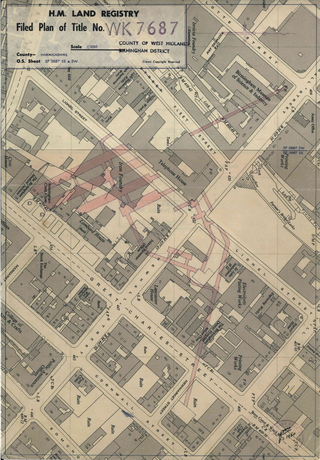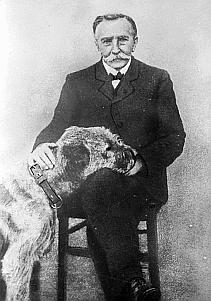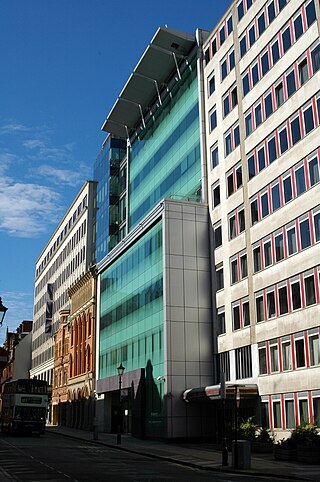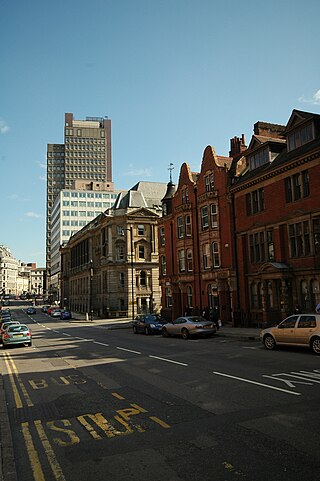
BT Group plc is a British multinational telecommunications holding company headquartered in London, England. It has operations in around 180 countries and is the largest provider of fixed-line, broadband and mobile services in the UK, and also provides subscription television and IT services.

Anchor Exchange was an underground, hardened telephone exchange built in Birmingham, England.

This timeline of the telephone covers landline, radio, and cellular telephony technologies and provides many important dates in the history of the telephone.

Mercury Communications was a national telephone company in the United Kingdom, formed in 1981 as a subsidiary of Cable & Wireless, to challenge the then-monopoly of British Telecom (BT). Although it proved only moderately successful at challenging BT's dominance, it led the way for new communication companies to attempt the same.

The Jewellery Quarter is an area of central Birmingham, England, in the north-western area of Birmingham City Centre, with a population of 19,000 in a 1.07-square-kilometre (264-acre) area.

The invention of the telephone was the culmination of work done by more than one individual, and led to an array of lawsuits relating to the patent claims of several individuals and numerous companies. Notable people including in this were Antonio Meucci, Elisha Gray and Alexander Graham Bell.
Northwestern Bell Telephone Company is an American communications provider that serves the states of the upper Midwest opposite the Southwestern Bell area, including Iowa, Minnesota, South Dakota, North Dakota, and Nebraska. As of 1991 the name Northwestern Bell is no longer the corporate identity, although Northwestern Bell is now owned by the Lumen Technologies and is therefore doing business as Lumen. Doing business as names were not begun before 2001; that is why the Northwestern Bell name was dormant but later revived by CenturyLink.

The BT Archives is an archive preserving the documentary heritage of the British telecoms company BT and its public sector predecessors. It is designated an official place of deposit for Public Records, for those records created prior to BT's privatisation in 1984.

17 & 19 Newhall Street is a red brick and architectural terracotta Grade I listed building, situated on the corner of Newhall Street and Edmund Street in the city centre of Birmingham, England. Although its official name is 17 & 19 Newhall Street, it is popularly known as The Exchange, and was previously known as the Bell Edison Telephone Building.

The National Telephone Company (NTC) was a British telephone company from 1881 until 1911 which brought together smaller local companies in the early years of the telephone. Under the Telephone Transfer Act 1911 it was taken over by the General Post Office (GPO) in 1912.

Edmund Street is a street located in Birmingham, England.

Newhall Street is a street located in Birmingham, England.
The British Telecom microwave network was a network of point-to-point microwave radio links in the United Kingdom, operated at first by the General Post Office, and subsequently by its successor BT plc. From the late 1950s to the 1980s it provided a large part of BT's trunk communications capacity, and carried telephone, television and radar signals and digital data, both civil and military. Its use of line-of-sight microwave transmission was particularly important during the Cold War for its resilience against nuclear attack. It was rendered obsolete, at least for normal civilian purposes, by the installation of a national optical fibre communication network with considerably higher reliability and vastly greater capacity.
TXK was a range of Crossbar exchanges used by the British Post Office telephone network, subsequently BT, between 1964 and 1994. TXC was used as the designation at first, but this was later changed as TXC sounded too much like TXE the code used for later electronic exchanges. Prior to this the GPO had standardised on Strowger for automatic switching and had resisted the adoption of Crossbar, preferring to wait for its electronic switching research to bear fruit. The development of electronic systems however took longer than anticipated and the British equipment manufacturers, particularly Automatic Telephone & Electric (ATE), which later became part of the Plessey group feared that continuing to focus the bulk of their production on Strowger equipment would harm their export sales as Crossbar had already become popular throughout the world.
This article is intended to show a timeline of events in the History of Birmingham, England, with a particular focus on the events, people or places that are covered in Wikipedia articles.

Alexander Graham Bell honors and tributes include honors bestowed upon him and awards named for him.

The Volta Laboratory and the Volta Bureau were created in Georgetown, Washington, D.C., by Alexander Graham Bell.

The General Post Office (GPO) was the state postal system and telecommunications carrier of the United Kingdom until 1969. Established in England in the 17th century, the GPO was a state monopoly covering the dispatch of items from a specific sender to a specific receiver ; it was overseen by a Government minister, the Postmaster General. Over time its remit was extended to Scotland and Ireland, and across parts of the British Empire.
The Telephone Cases, 126 U.S. 1 (1888), were a series of U.S. court cases in the 1870s and the 1880s related to the invention of the telephone, which culminated in an 1888 decision of the U.S. Supreme Court that upheld the priority of the patents belonging to Alexander Graham Bell. Those patents were used by the American Bell Telephone Company and the Bell System, although they had also acquired critical microphone patents from Emile Berliner.
The Cities of Manchester and Salford and some surrounding urban areas such as Stockport, Oldham and Bolton,, were the location of several advances in the development of telephony in the United Kingdom. A Manchester company installed the country's first regular telephone system in the city, wiring solutions which were adopted across Britain were initiated in Manchester and Stockport, the city was (arguably) the site of the UK's first telephone exchange and a service which was the forerunner of modern mobile phones was controlled from the city.